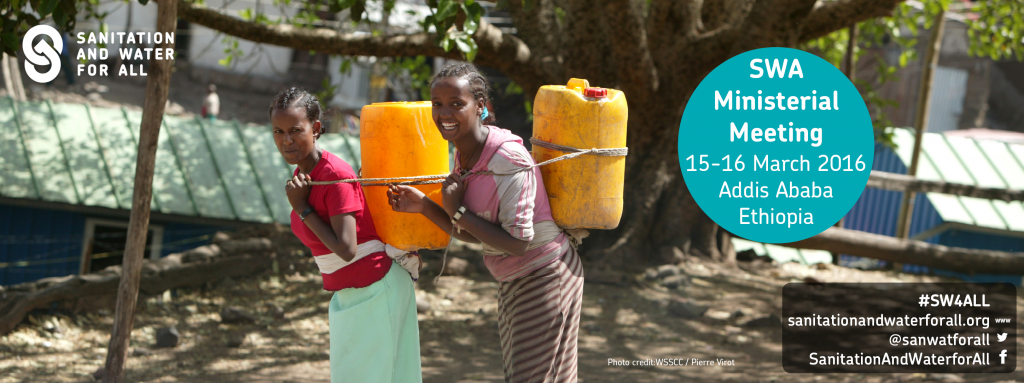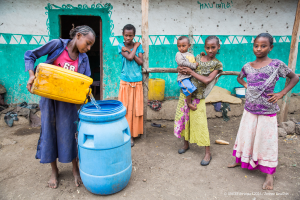Event Summary: Sanitation and Water for All Ministerial Meeting Day Two – Breaking our Collective Norms
March 17, 2016

In handwashing behavior change we oftentimes talk about social norms and how they influence behavior. At the outset of day two of the Sanitation and Water for All Ministerial Meeting, Sarina Prabasi, CEO of WaterAid America, challenged us to break beyond our collective norms in how we respond to the Sustainable Development Goals (SDGs). Specifically, she called on us to ensure that hygiene, especially for women and girls, is not neglected.
There are other ways, too, in which we must move beyond a “business as usual” mindset if we hope to achieve the SDGs. Brian Arbogast with the Gates Foundation said that the Millennium Development Goals (MDGs) were insufficient because they focused on “counting toilets.” On the other hand, improved health outcomes are the true aim of the SDGs. This is why success in terms of achieving universal access to sanitation and hygiene does not only rely upon the provision of services. As the delegate from Palestine reminded us, sanitation and hygiene facilities must be used and this requires behavior change. It is for this reason that the PPPHW seeks to be a driving force behind identifying and promoting hygiene behavior change through knowledge sharing events, such as our upcoming Handwashing Think Tank.
reminded us, sanitation and hygiene facilities must be used and this requires behavior change. It is for this reason that the PPPHW seeks to be a driving force behind identifying and promoting hygiene behavior change through knowledge sharing events, such as our upcoming Handwashing Think Tank.
During day two, ministers also discussed financing of the SDGs, as these goals will require an enormous amount of investment. This is another area where we should reconsider our norms. I was pleased to hear it stated unequivocally in the working group in which I participated that governments should not approach the private sector as a panacea to fill funding gaps. A number of delegates, including Pakistan, said that they were exploring public-private partnerships in the WASH sector. This is important. While the private sector can assist in funding WASH projects, full collaboration through partnerships yields better potential returns. Civil society, the private sector, and governments have different expertise. To that end, we should both work together and learn from one another.
Lastly, but certainly not least, improving hygiene and addressing inequalities must be prioritized. This was unfortunately not the case in the MDGs; with the SDGs we have the opportunity to break out of old habits and embrace hygiene as an important component of meeting Goal 6: ensuring water and sanitation for all. This week’s SWA Ministerial Meeting made good progress by laying the groundwork for achieving this audacious goal. Much work is ahead of us. We must ensure that these words result in action, but I am positive that we are having the right conversations as a sector to begin the work of fulfilling the SDGs.